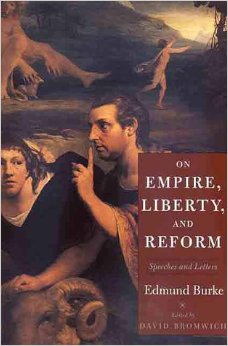The excerpt below comes from a 1774 speech by Edmund Burke after his election to represent Bristol in Parliament. He argues that a representative, as he makes laws in a deliberative assembly, is not bound to vote the mandates of those who elected him. Instead, he must exercise his mature judgment, which may lead him to vote contrary to the wishes of his constituency. If he is unable to persuade his constituency of the merits of his action, they may remove him. Accepting the risk of electoral defeat, the representative must lead.
Certainly, gentlemen, it ought to be the happiness and glory of a representative to live in the strictest union, the closest correspondence, and the most unreserved communication with his constituents. Their wishes ought to have great weight with him; their opinion, high respect; their business, unremitted attention. It is his duty to sacrifice his repose, his pleasures, his satisfactions, to theirs; and above all, ever, and in all cases, to prefer their interest to his own. But his unbiassed opinion, his mature judgment, his enlightened conscience, he ought not to sacrifice to you, to any man, or to any set of men living. These he does not derive from your pleasure; no, nor from the law and the constitution. They are a trust from Providence, for the abuse of which he is deeply answerable. Your representative owes you, not his industry only, but his judgment; and he betrays, instead of serving you, if he sacrifices it to your opinion.
Observes David Broomwich:
Burke’s strictures here contain the germ of a theory of representation that would later be invested with much authority by the American authors of the Federalist Papers. The theory holds that a legislator may gain, from experience in making laws, a knowledge hardly available to those who elect him. The people remain the source of ultimate power since they can turn a representative out of office. Meanwhile the representative is to follow the public good and bring to bear his understanding of the pragmatic means to attain that good. Answerable to the suffrage of opinion, he should be its guide and to its follower.
– Edmund Burke, “Mr. Burke’s Speech to the Electors of Bristol” in On Empire, Liberty, and Reform: Speeches and Letters, ed. by David Broomwich (Yale University Press, 2000), 50-57.
